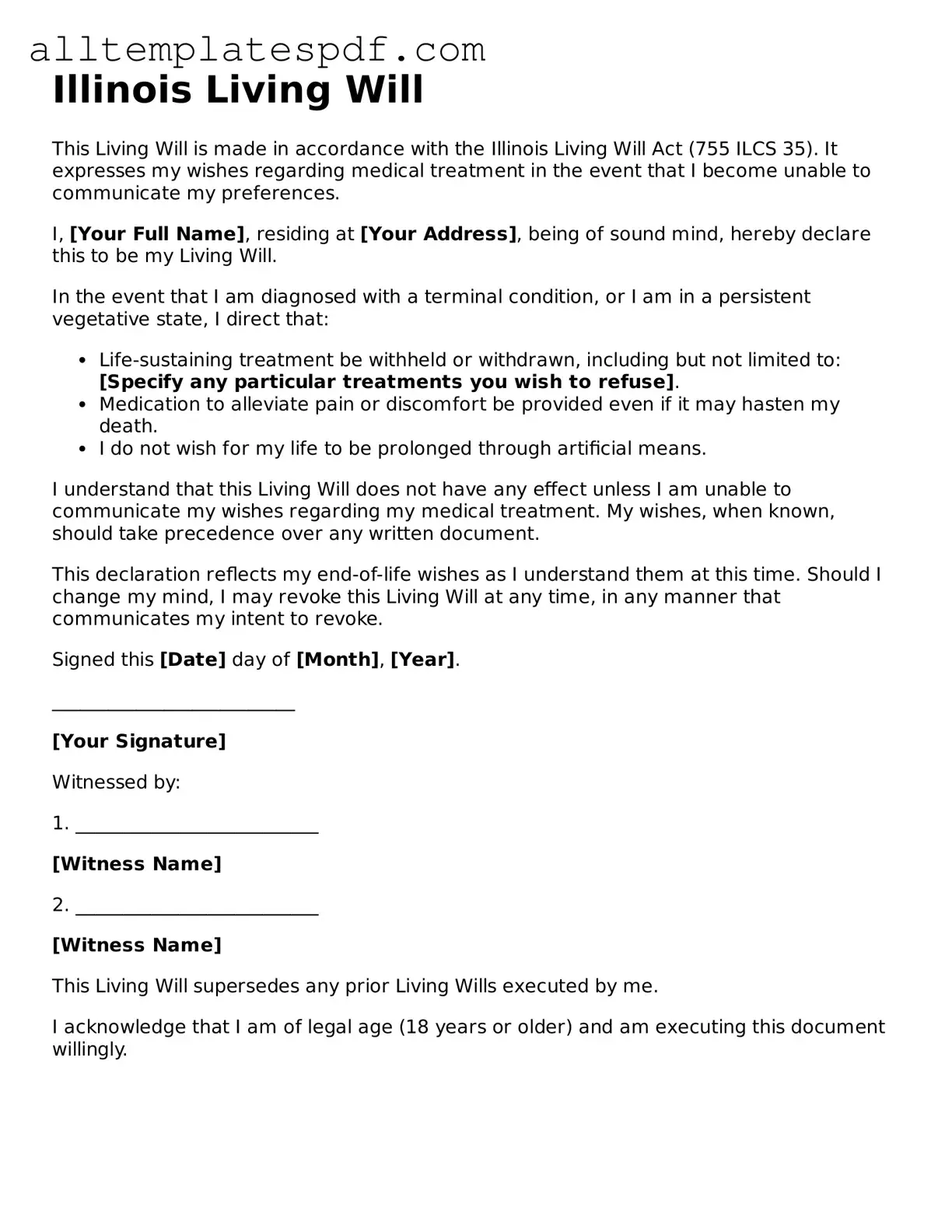When individuals take the important step of completing an Illinois Living Will form, they often overlook key details that can lead to confusion or complications later on. One common mistake is failing to clearly define their wishes regarding medical treatment. It is essential to articulate preferences about life-sustaining measures, resuscitation, and other critical health care decisions. Without this clarity, healthcare providers may struggle to understand the individual's intentions during a medical crisis.
Another frequent error is neglecting to sign and date the form properly. A Living Will must be signed by the individual to be valid. Additionally, if the document is not dated, it may raise questions about its relevance and authenticity. Ensuring that the form is both signed and dated can prevent unnecessary disputes among family members or healthcare professionals.
Many people also forget to have the Living Will witnessed or notarized, depending on the specific requirements of Illinois law. Witnesses play a crucial role in affirming the validity of the document, and without their signatures, the Living Will may not hold up in legal settings. It is advisable to consult the latest legal guidelines to ensure compliance with witnessing requirements.
In some cases, individuals may not discuss their Living Will with family members or healthcare proxies. This lack of communication can lead to misunderstandings or disagreements when critical decisions need to be made. Open conversations about one’s wishes can ensure that loved ones are aware of the individual's preferences and are prepared to advocate for them when necessary.
Another mistake involves using outdated forms or templates. Laws and regulations surrounding Living Wills can change, and utilizing an old version may result in invalidation of the document. Always check for the most current form available through official state resources to ensure that your wishes are legally recognized.
People sometimes assume that a Living Will is sufficient on its own. However, it is important to consider complementary documents, such as a healthcare power of attorney. While a Living Will outlines specific wishes regarding medical treatment, a healthcare power of attorney designates someone to make decisions on your behalf if you are unable to do so. Having both documents in place can provide comprehensive coverage for your healthcare preferences.
Lastly, some individuals may overlook the importance of reviewing and updating their Living Will periodically. Life circumstances, health conditions, and personal beliefs can change over time. Regularly revisiting the document ensures that it accurately reflects current wishes and can help avoid potential conflicts in the future.

